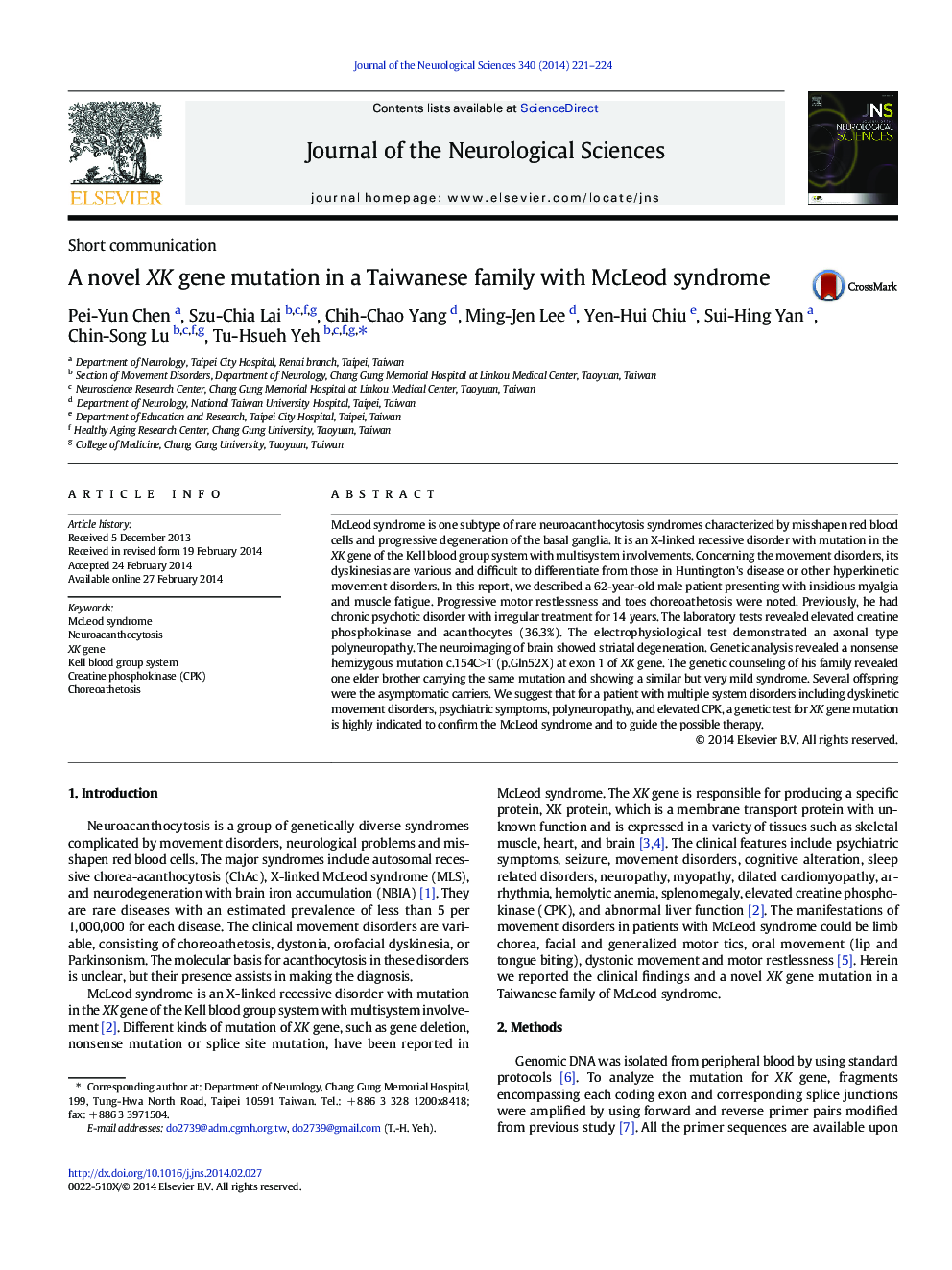| Article ID | Journal | Published Year | Pages | File Type |
|---|---|---|---|---|
| 8277594 | Journal of the Neurological Sciences | 2014 | 4 Pages |
Abstract
McLeod syndrome is one subtype of rare neuroacanthocytosis syndromes characterized by misshapen red blood cells and progressive degeneration of the basal ganglia. It is an X-linked recessive disorder with mutation in the XK gene of the Kell blood group system with multisystem involvements. Concerning the movement disorders, its dyskinesias are various and difficult to differentiate from those in Huntington's disease or other hyperkinetic movement disorders. In this report, we described a 62-year-old male patient presenting with insidious myalgia and muscle fatigue. Progressive motor restlessness and toes choreoathetosis were noted. Previously, he had chronic psychotic disorder with irregular treatment for 14Â years. The laboratory tests revealed elevated creatine phosphokinase and acanthocytes (36.3%). The electrophysiological test demonstrated an axonal type polyneuropathy. The neuroimaging of brain showed striatal degeneration. Genetic analysis revealed a nonsense hemizygous mutation c.154C>T (p.Gln52X) at exon 1 of XK gene. The genetic counseling of his family revealed one elder brother carrying the same mutation and showing a similar but very mild syndrome. Several offspring were the asymptomatic carriers. We suggest that for a patient with multiple system disorders including dyskinetic movement disorders, psychiatric symptoms, polyneuropathy, and elevated CPK, a genetic test for XK gene mutation is highly indicated to confirm the McLeod syndrome and to guide the possible therapy.
Related Topics
Life Sciences
Biochemistry, Genetics and Molecular Biology
Ageing
Authors
Pei-Yun Chen, Szu-Chia Lai, Chih-Chao Yang, Ming-Jen Lee, Yen-Hui Chiu, Sui-Hing Yan, Chin-Song Lu, Tu-Hsueh Yeh,
